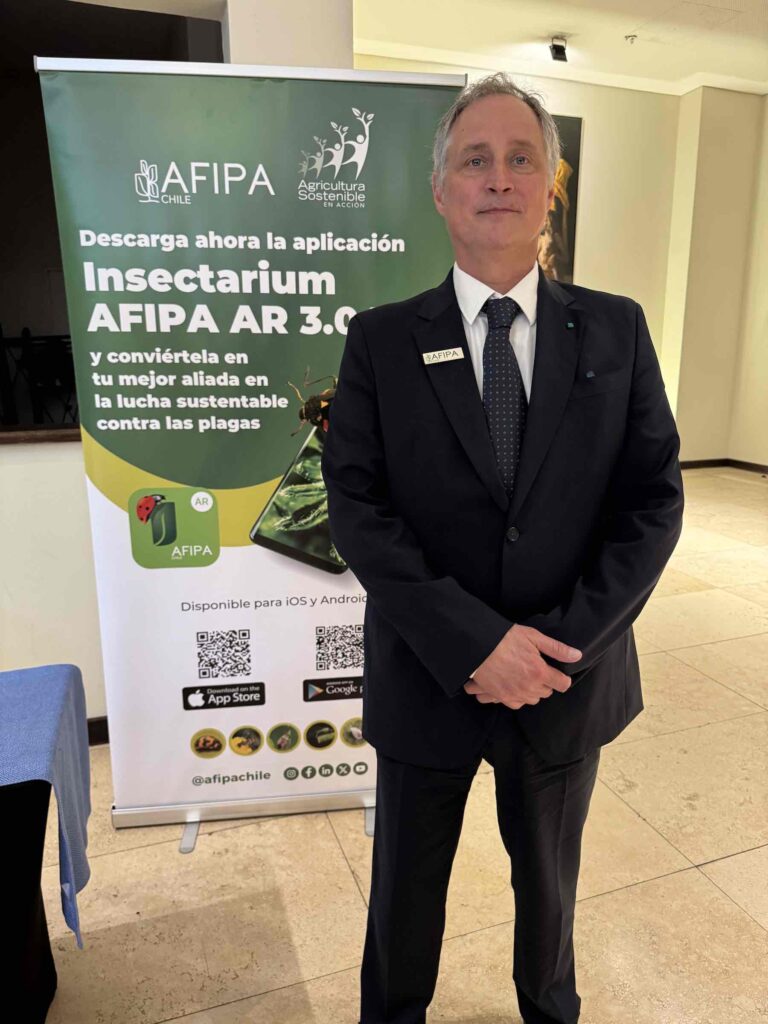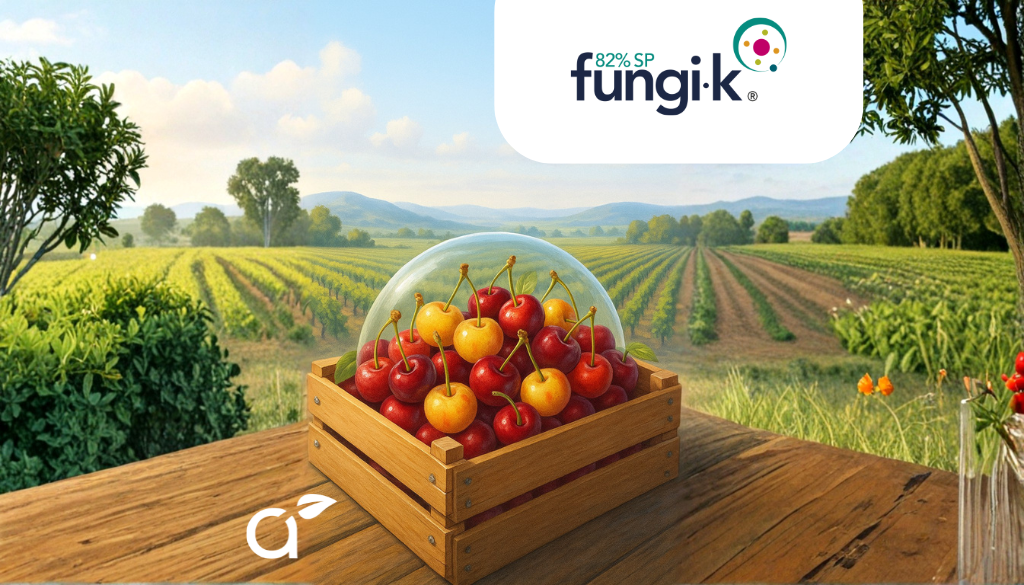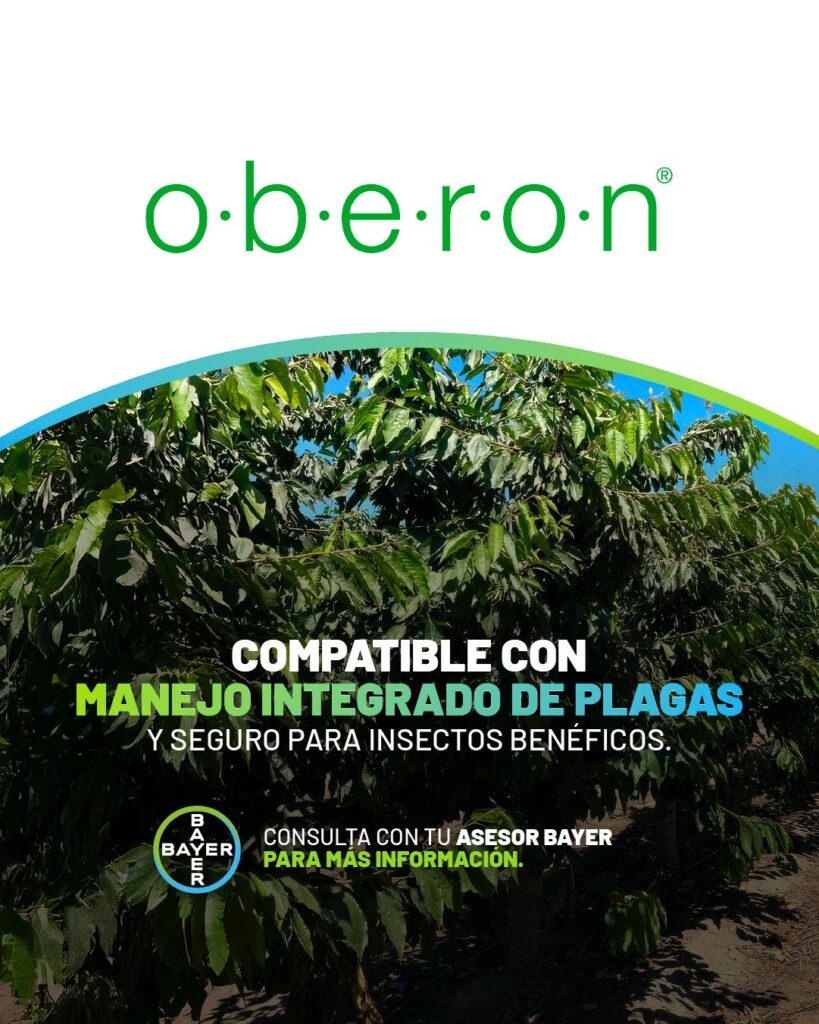This is an innovative viscous fat formulation (GS) that is installed on the trunk of trees, which helps to significantly reduce the presence of "vine burrito" (Naupactus xanthographus) in cherry trees, walnut trees, table grapes and wine, among others. It also controls "fruit tree capachito" (Naupactus cervinus) in citrus trees.

As an excellent alternative to combat the "vine donkey" (Naupactus xanthographus) in cherry trees, Blendex® (SAG Registration 1,893) is presented, an innovative and efficient fatty (GS), viscous formulation, which in combination with a 9% of bifenthrin (synthetic pyrethroid highly effective in the control of curculionids), generates a physical and chemical action, which significantly reduces the presence of vine burrito.
This product, intended to control this quarantine pest, has a high-quality formulation, active ingredient and co-formulants in a perfect balance; in addition, it is easy to use, and has a high performance in the application, due to its excellent consistency that prevents it from running.
This innovative solution is installed on tree trunks, offering great stability over a wide range of temperatures; it is resistant to rain washing, and its green-blue colour allows for monitoring proper application.
The agricultural engineer Jorge Lundstedt, Go to Market Zona Norte of UPL, explains what the greatest damage of these quarantine species is: “The most important damage of both pests is at the soil level, since the larvae feed on the roots, especially the rootlets. In the case of the vine burrito, the female lays her eggs mainly on the trunk of the vine or other fruit trees. As soon as they hatch, the larva falls and enters the soil. It begins by feeding on the rootlets of the weeds and when it reaches a greater development, it attacks the roots of the plant.”
It should be noted that the larval stage of this species lasts approximately nine months; it subsequently pupates at a depth of between 20 and 50 centimetres from the soil surface (Ripa, 1986), a state in which it remains for about a month, and then gives way to adults, causing serious damage to the roots of the orchards; the use of the reserves that the plant, through its roots, has secured for optimal vegetative and reproductive development is directly diminished, directly affecting the potential of the orchard.
How and when to use Blendex®?

Although the presence of the "vine burrito" and also the "fruit tree caps" in the case of citrus fruits can last from the beginning of spring until autumn, controlling adult species after November is practically unfeasible; therefore, it is extremely important to be alert to the presence of these quarantine species.
Monitoring is the main tool to determine the correct and timely installation of the Blendex® band, since adult specimens of the grapevine burrito can live in some weeds, as well as in various fruit trees; on the other hand, their larvae can remain in the soil for up to 20 months feeding on roots, a scenario that may well generate a real emergency if not controlled in time.
However, the viscous fatty formulation band, installed on the trunk of fruit trees, helps to significantly reduce the presence of "vine burrito" (Naupactus xanthographus) in cherry trees, walnut trees, table and wine grapes, among others, preventing adult specimens from reaching the top of the plants and causing more damage. It also controls the sap of fruit trees (Naupactus cervinus) in citrus fruits.
In addition, Blendex® provides a lot of information regarding monitoring and potential damage risk. Although its implementation may seem operationally complex, in terms of cost/solution and protection time, it is probably the most effective technique for controlling this pest, without generating additional residues on the fruit.
“Its use means, among other things, significant savings in fuel, machinery and labour. It helps to reduce the number of foliar applications, does not generate residues in the fruit and allows the pest cycle in vines and fruit trees to be practically cut short,” says Jorge Lundstedt.
Another relevant point to highlight about Blendex®, this innovative product, is that it is an environmentally friendly solution, an aspect of great relevance for UPL, in its constant task of promoting sustainability, even having an area that deals, from a holistic perspective, for example, with the reduction of the carbon and water footprint, the conservation of biodiversity, the reduction of solid waste and the protection of human health, among other aspects.
“Today, thanks to its innovative formulation, UPL and Blendex make it possible to use a cost-efficient and sustainable method to control quarantine weevils in Chilean fruit growing. This tool, which since its conception and development at the Agricultural Research Institute (INIA), has as its fundamental premise the control of pests in a way that is friendly to the environment and people’s health, significantly reducing the use of insecticides and achieving a successful means of controlling these pests,” concluded Patricio Cerda, Assistant Manager Go to Market South Zone UPL.









